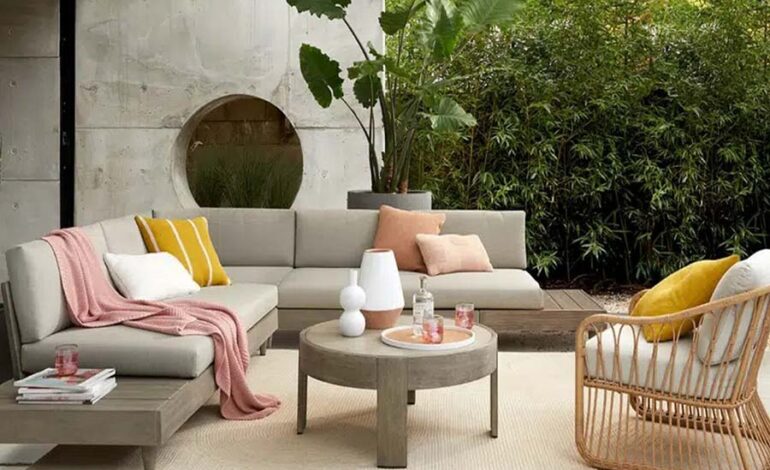Maintaining a Healthy Balance: Outdoor Furniture and Your Organic Garden

Spending leisurely hours outdoors, whether on the porch, patio, or in the backyard, is a cherished pastime for many during the summer months. However, when selecting outdoor furniture for these spaces, it’s essential to consider not only aesthetics but also the environmental impact and safety, particularly concerning organic gardens. This article delves into sustainable outdoor furniture options that harmonize with the principles of organic gardening while requiring minimal maintenance.
Embracing Sustainable Materials
Natural materials are favored for outdoor furniture, echoing the ethos of organic gardening. While these pieces lend a timeless charm to outdoor spaces, they often require significant maintenance to withstand the elements. However, opting for sustainable materials alleviates these concerns, ensuring both durability and environmental responsibility.
Low-Maintenance Options
Poly furniture crafted from recycled plastic offers a durable and colorful alternative that requires minimal upkeep. Additionally, wood furniture sourced from Forest Stewardship Council (FSC)-certified forests, such as teak, cedar, or cypress, provides natural beauty without constant maintenance. Recycled aluminum furniture presents another weather-resistant option that retains its appeal with minimal seasonal care.
Upholstered Considerations
For cushioned furniture pieces, the choice between petroleum-based synthetics and natural fabrics like cotton depends on personal preference and climate considerations. While petroleum-based synthetics offer longevity, cotton upholstery is susceptible to mold in humid climates. Selecting cotton textiles certified by organizations like the Better Cotton Initiative ensures sustainable and safe sourcing practices.
Ethical Sourcing and Transparency
Regardless of material choice, prioritizing responsibly sourced materials and transparent supply chains is paramount. Opt for brands that adhere to fair labor practices and operate under stringent environmental standards. Artisan-made outdoor furniture offers a unique touch while supporting skilled craftsmen and traditional craftsmanship.
Avoiding Toxic Finishes
Toxic finishes and sealants used in outdoor furniture pose risks to both the environment and human health. Per- and poly-fluoroalkyl chemicals (PFAS), commonly found in waterproofing agents, are particularly hazardous. Opt for PFAS-free products and brands with clear policies against toxic chemicals. Alternatively, consider natural waxes for waterproofing furniture without harmful chemicals.
Sustainable Outdoor Furniture Brands
Several brands prioritize sustainability and ethical practices in outdoor furniture manufacturing:
DutchCrafters: Offers solid wood furniture sourced from reclaimed, recycled, or responsibly managed forests, including poly lumber pieces.
Made Trade: Curates a collection of natural wood, recycled aluminum, and colorful recycled plastic furniture, ensuring sustainable sourcing and safe working conditions.
West Elm: Designs Fair Trade-certified products using sustainably sourced materials, including FSC-certified wood and cotton certified by GOTS and OCS.
VivaTerra: Sources unique, handcrafted furniture from artisan and Fair Trade organizations globally, using recycled, natural, and reclaimed materials.
Yardbird: Designs and manufactures durable outdoor furniture using recyclable materials like hand-woven wicker and sunbrella fabrics.
Outer: Offers spill-proof outdoor furniture made with recycled polypropylene and FSC-certified teak, prioritizing fair wages and sustainable materials.
1stDibs: An online marketplace featuring a diverse range of outdoor furniture and home goods from vetted sellers worldwide.
Conclusion
Selecting outdoor furniture that aligns with the principles of organic gardening involves considering sustainable materials, ethical sourcing, and avoidance of toxic finishes. By opting for low-maintenance yet eco-friendly options from reputable brands, you can create inviting outdoor spaces that harmonize with your organic garden’s ethos.









